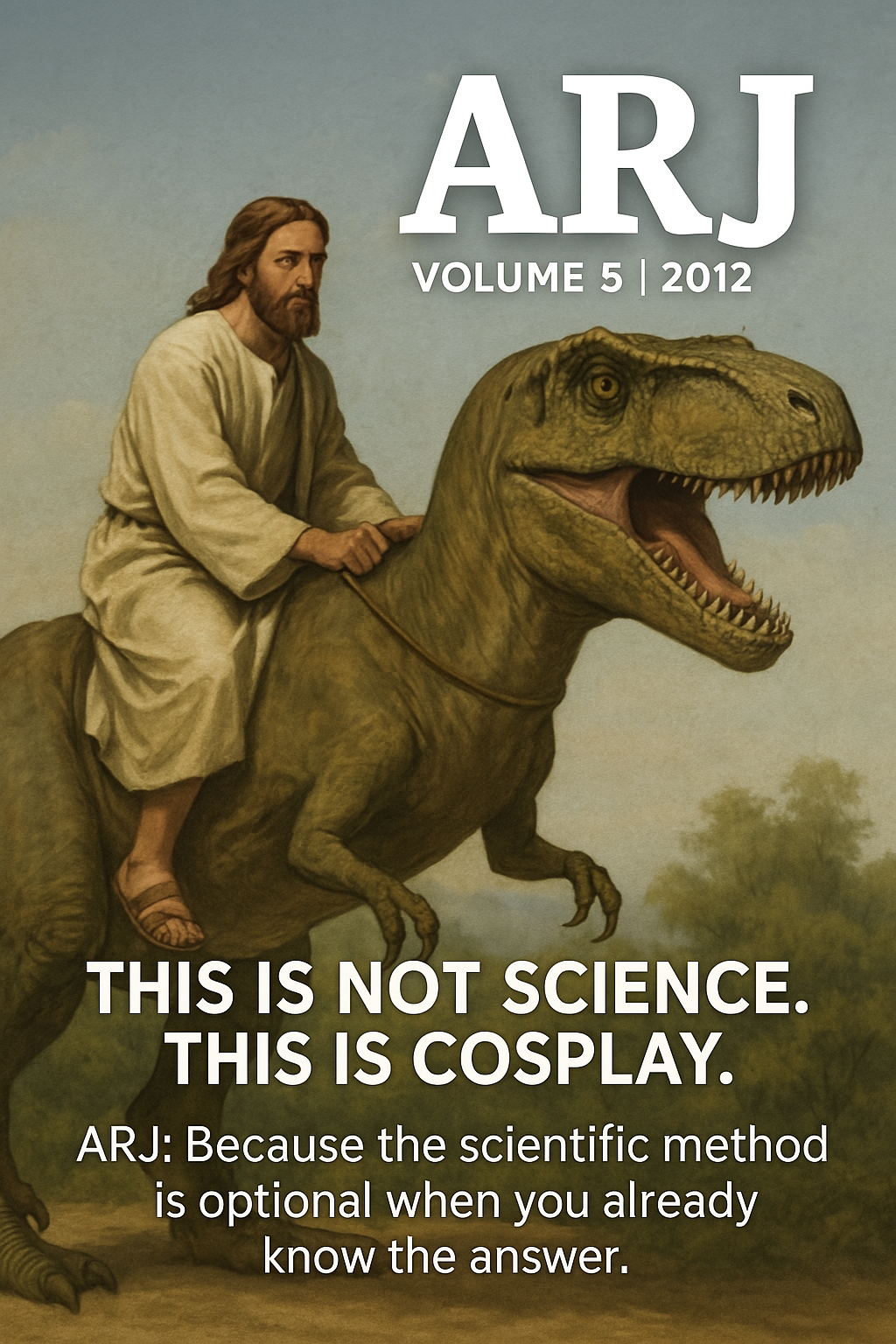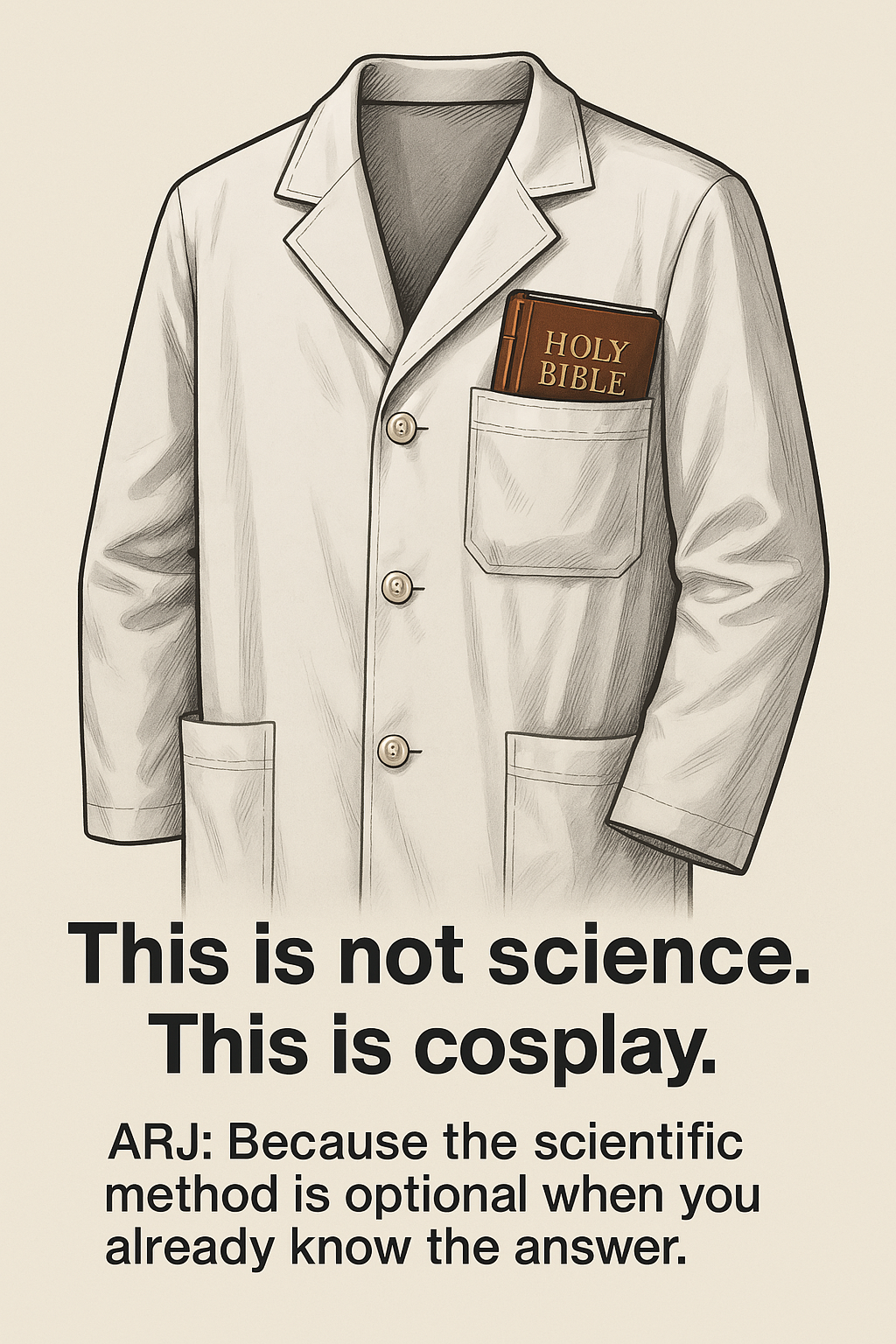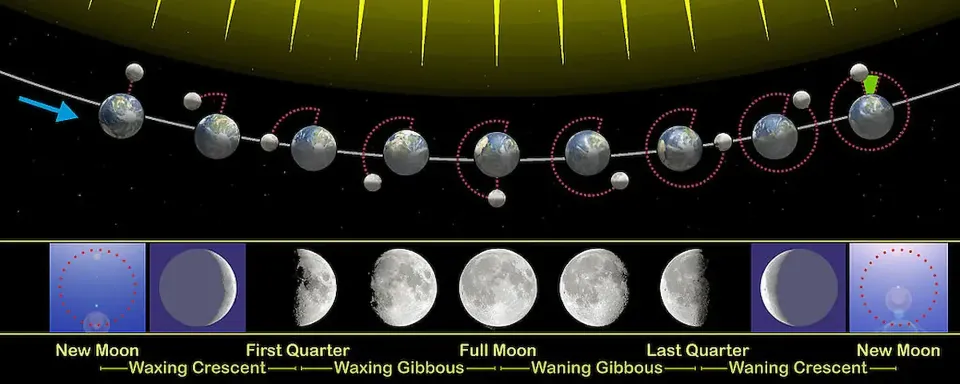Creation “Science” and the Gospel According to AiG
Answers in Genesis publishes a so-called "scientific journal"—but spoiler alert: it only prints what confirms Genesis. No testable science allowed, just biblical cosplay in a lab coat. Here's why ARJ is more theology than theory.

AiG’s Answers Research Journal isn’t really about research. It’s about enforcing a theological narrative in scientific disguise. No testable hypotheses. No dissenting conclusions. Just confirmation bias, wrapped in Scripture, wearing a lab coat.
So, you’ve heard of Answers in Genesis (AiG), right? They’re the folks behind the life-sized Noah’s Ark and the idea that dinosaurs and humans went on joint nature walks. Well, they also run something they call a “scientific journal” called the Answers Research Journal (ARJ), which is less about research and more about reinforcing what they already believe—scientifically flavored theology, if you will.
There’s chatter that anyone submitting a paper has to sign a sort of ideological loyalty oath—something like: “I solemnly swear that no data shall ever contradict Genesis, amen.” While I couldn’t dig up a formal contract, AiG’s submission guidelines and Statement of Faith don’t leave much room for ambiguity. You might not sign in ink, but the message is clear: doubt the dogma and your paper hits the shredder.
What Counts as Science in This Parallel Universe
Let’s look at what it actually takes to get published in ARJ. Spoiler: it's not robust methodology or peer-reviewed objectivity.
The submission checklist reads like an entry form to a club where fossil evidence is suspicious and 6,000-year timelines are sacred:
- Your topic has to support the Creation and Flood model. No exceptions.
- You must contribute something “original” to that model—but only within the preset boundaries.
- Everything must be framed in a young-earth, young-universe worldview. Good luck with cosmology.
- If you reference evidence for an old Earth, you’re required to disprove it—creatively.
- Want to be polemical? Cool. Just stick to stuff nobody argues about anymore.
- Oh, and cite AiG’s interpretations and use their preferred biblical hermeneutics—or you're out.
It’s like applying to med school and being told upfront: “We only treat people with leeches and prayer. Please don’t bring up antibiotics.”
To ensure purity, the editor-in-chief has carte blanche to reject any paper that doesn’t vibe with AiG’s theology. That includes anything that might cause controversy—which, ironically, is often the point of publishing new scientific ideas.

Evidence? We Already Have the Answer, Thanks.
Let’s get this part straight: AiG doesn’t just prefer that the Bible be right. They start from the premise that it must be, and anything that suggests otherwise is tossed out before it can finish clearing its throat.
From their Statement of Faith:
“No apparent, perceived, or claimed evidence in any field, including science, can be valid if it contradicts the clear teaching of Scripture.”
That’s not just cherry-picking the data—that’s pre-canceling the orchard.
This means you don’t get to test hypotheses, follow where the evidence leads, or publish a surprising result. You already know how the movie ends. You just have to write scenes that don’t contradict the final act.
So Why Bother with the Lab Coat?
AiG is crystal clear about its priorities:
“The scientific aspects of creation are important, but are secondary to the proclamation of the gospel of Jesus Christ.”
Let that sink in. Their idea of science is something that serves theology—not stands independently, not questions freely, not tests or falsifies. Just props up the gospel like a nicely framed church bulletin.
The goal isn't discovery—it's reinforcement. The method isn't experimentation—it's confirmation. The outfit might look like science, but underneath, it’s doctrine all the way down.
Let’s Be Honest: This Isn’t Science
When your journal rejects any conclusion that challenges your interpretation of Genesis, you’re not doing science—you’re doing curated belief management. AiG doesn’t want to find out what’s true. They want to filter what’s acceptable.
You can’t call it peer-reviewed science if the only peer you’re trying to impress is Moses.

Conclusion
Answers Research Journal wears a lab coat, but it’s a costume. Its guidelines and its Statement of Faith are pre-commitments to an outcome, not an open investigation. No hypothesis is welcome unless it confirms what AiG already believes. The Bible isn’t a text to be explored alongside scientific discovery—it’s the final answer to every question, even before it’s asked.
This isn’t science. It’s theological ventriloquism dressed in empirical drag.
Works Cited
Answers in Genesis. "Statement of Faith." Answers in Genesis, https://answersingenesis.org/about/faith/. Accessed 1 Mar. 2025.
Answers in Genesis. "Instructions to Authors." Answers Research Journal, https://answersresearchjournal.org/call-for-papers/. Accessed 1 Mar. 2025.




